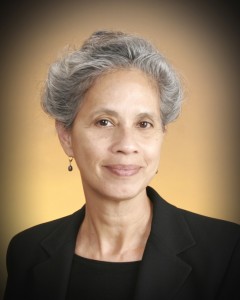CANDIDATE SPOTLIGHT: Mahealani Wendt – Candidate OHA Maui Seat
By Maui Now Staff
Mahealani Wendt is a candidate for the Office of Hawaiian Affairs, Maui Island residency seat. Wendt is among a list of 2 individuals identified as candidates in the race on the 2014 ballot.
She joins Carmen Hulu Lindsey in vying for the Maui seat on the OHA Board of Trustees.
Full Name: Mahealani Wendt
Date and Location of Birth: January 15, 1947 Kapiolani Hospital, Honolulu
Current Residence: Wailuanui, Maui
Occupation: Administrator & Executive Director, Native Hawaiian Legal Corporation, 1978-2009
Elected offices held, if any: None
Education: BA, Political Science, UH-Manoa, 1976; William S. Richardson School of Law, UH-Manoa, 1976-1978; Graudate Certificate, Public Administration, 1985
Community Involvement: Full-Time Volunteer, Native Hawaiian Legal Corporation, 1978-1982; Board Member, Legal Aid Society of Hawaii, 1980-1984; Member, Legal Aid Community Clients Council, 1980-1984; Member, Queen Liliʻuokalani Children’s Center Advisory Board, 1989-1991; Board Member, Alu Like, Inc., 1991-1994; Founding Member, Waimanalo Health Center, 1991-1992; Board Member, Native American Rights Fund, 1989-1994; Member, State of Hawaiʻi Judiciary Alternative Dispute Resolution Advisory Board, 1990-1996; Board Member & President, Hui Naʻauao Sovereignty & Self-Determination Community Education Project, 1992-1994; Member, Hawaiian Sovereignty Elections Council, 1993-1996; Member, Hawaiʻi Justice Consortium, 1995-1998; Member, Ha Hawaiʻi, 1996-1998; Elected Delegate, Native Hawaiian Convention/Na ʻOiwi Hawaiʻi, 1998-2000; Founding Member, Kakoʻo ʻOhana Paʻahao, 2000-2001; Chair, Government Relations Committee, Association of Hawaiian Civic Clubs, 2001-2004; Founding Board Member, Council for Native Hawaiian Advancement, 2001-2005; Member, State of Hawaiʻi Judiciary Commission on Access to Justice, 2008-2009; Delegate, Association of Hawaiian Civic Clubs Annual Convention, 1986-2012; Board Member, Na Moku Aupuni o Koʻolau Hui; Member, Native Hawaiian Roll Commission, Maui Nui
Family Status: Married to Edward Wendt, 7 children, 18 grandchildren
Office of Hawaiian Affairs Candidate Questionnaire:
1. Are you for or against federal recognition of Native Hawaiians by the US Government? Explain.
Answer: I support federal recognition by the US government, and believe a Native Hawaiian government should be positioned for political recognition from all governments, whether they be at the state, federal, or international level. Political recognition means the acknowledgment of a nation’s sovereignty or legitimacy by other nations, and Hawaiians should welcome it from other governments, whichever governments they may be, including the US. The United States has acknowledged and apologized to Native Hawaiians for the illegal theft of its national lands and political sovereignty through Public Law 103-150, but it is a world power which has no intention of giving up its sovereignty and control over Hawaiʻi. Hawaiʻi’s residents voted overwhelmingly for statehood in 1959, and although substantial numbers of Native Hawaiians and others may have since had a change of heart, the proponents of an independent political status for Hawaiʻi are a small minority of the total resident population, most of whom do not support independence. This is the reality. After 121 years, attempts by Native Hawaiians to rectify the injustice of the overthrow through the US Congress, through the US Executive Branch, through the World Court, United Nations, through political activism and agitation, through diplomacy, or any other means have not ultimately succeeded. It is time for Hawaiians to seize the opportunity to organize themselves into a more potent political force by taking the incremental steps necessary today, to realize their collective vision for tomorrow. Queen Liliʻuokalani said, “I could not turn back the time for the political change, but there is still time to save our heritage. You must remember never to cease to act because you fear you may fail.” We cannot turn back the time for political change. The reality of 121 years of American colonization, vastly altered demographics and economies, marginalization of Hawaiians in their homeland to one of five “major minority” groups, land alienation, ongoing struggles to recover once-outlawed vestiges of their culture, the ever-looming prospect of legal challenges based on impermissible and unconstitutional race-based programs and entitlements – this vastly altered political, economic and cultural landscape demands visionary leadership with a firm grasp on today’s reality. Refusal to accept any political status less than full independence consigns Native Hawaiians to the status quo, largely politically impotent with respect to policy decisions that affect them, and continuing vulnerability to legal challenges which threaten to erode or entirely eliminate the trust assets they now enjoy, including Kamehameha Schools, Queen Liliʻuokalani Trust, Lunalilo Home, 5(f) Trust Lands revenues, and Hawaiian Homes homesteads. If refusing to settle for any political status less than complete independence means consigning Native Hawaiians to the status quo now and into the foreseeable future (and I believe it does), then I support federal recognition as a necessary step in Native Hawaiians’ strivings to control of their political destiny.
2. What do you feel is the best way to facilitate the nation building process? Explain
Answer: As the lead agency serving Native Hawaiians, OHA should follow through on its plans to convene a consortium comprised of community organization representatives who can oversee the nation building process. Thereafter, OHA should completely absent itself from the process, except to provide the resources necessary for the consortium to oversee the nation building process. In providing these resources, OHA should continue to adhere to the highest fiduciary standards required of any trustee, ensuring full accountability of fiscal and other resources expended. There should be absolutely no state or federal participation or influence in this process, including by the US Department of Interior. The process of forming a government may include:
1) Broad-based community education using curriculum materials developed by and overseen by a broad-based consortium of community representatives;
2) An apportionment plan based on traditional ahupuaʻa land divisions;
3) An election of delegates based on the apportionment plan;
4) Development of curriculum materials and studies specifically for the delegates;
5) An aha, or convening of delegates to draft and propose an organic governing document, such as a constitution;
6) Ratification of the proposed organic document by those who chose to participate in the process;
7) If the governing document is approved, implementation of its provisions;
8) If the governing document is not approved, a reconvening of the delegates to re-draft until the document is ratified by popular vote;
9) The government is constituted.
Finally, many proponents of Hawaiian independence believe their agenda lacks popular support because they have lacked the financial resources required to educate the public about the truth of Hawaii’s history and the options available to those who seek independence. They feel, justifiably, that OHA has favored integration, as opposed to independence, and mobilized its resources accordingly. Because OHA exists to serve all Hawaiians, I support providing resources for education about Hawaiian independence.
At some point, a political status referendum should be held to give all Hawaiʻi voters a political status choice between integration and independence, a vote that has never been held in the history of Hawaiʻi. This in and of itself is an issue which needs to be addressed, for such a vote should have been held at the time of the statehood plebiscite. Following on the heels of World War II and a heightened spirit of American national patriotism in Hawaiʻi, that question would probably not have been answered in favor of independent political status in 1959. However, in accordance with international law standards, Hawaiʻi’s voters should have been given an opportunity to choose between the two; they were instead offered the option of “statehood now” or “statehood later”, not a true political status plebiscite.
***Candidate spotlight segments were compiled as a public service to further educate and inform Maui voters about the upcoming primary election on August 9, 2014, and the general election on November 4, 2014. The questionnaires were distributed via mail following the primary election candidate filing deadline for select races affecting Maui County. The responses do not reflect the opinion or position of Maui Now or Pacific Media Group.











